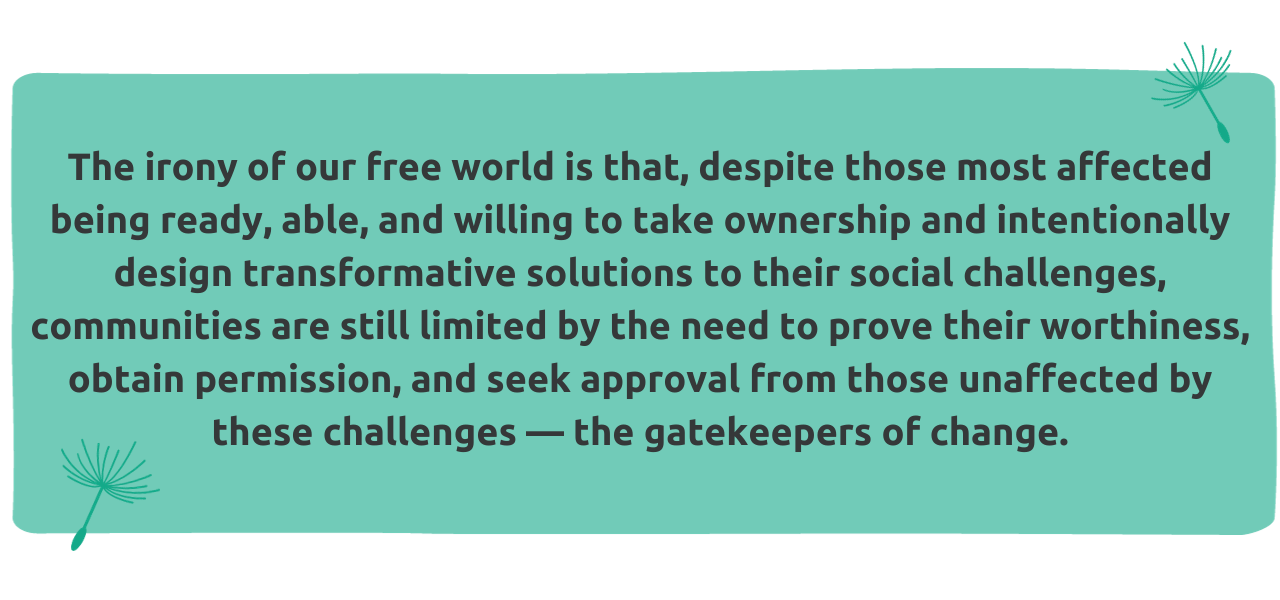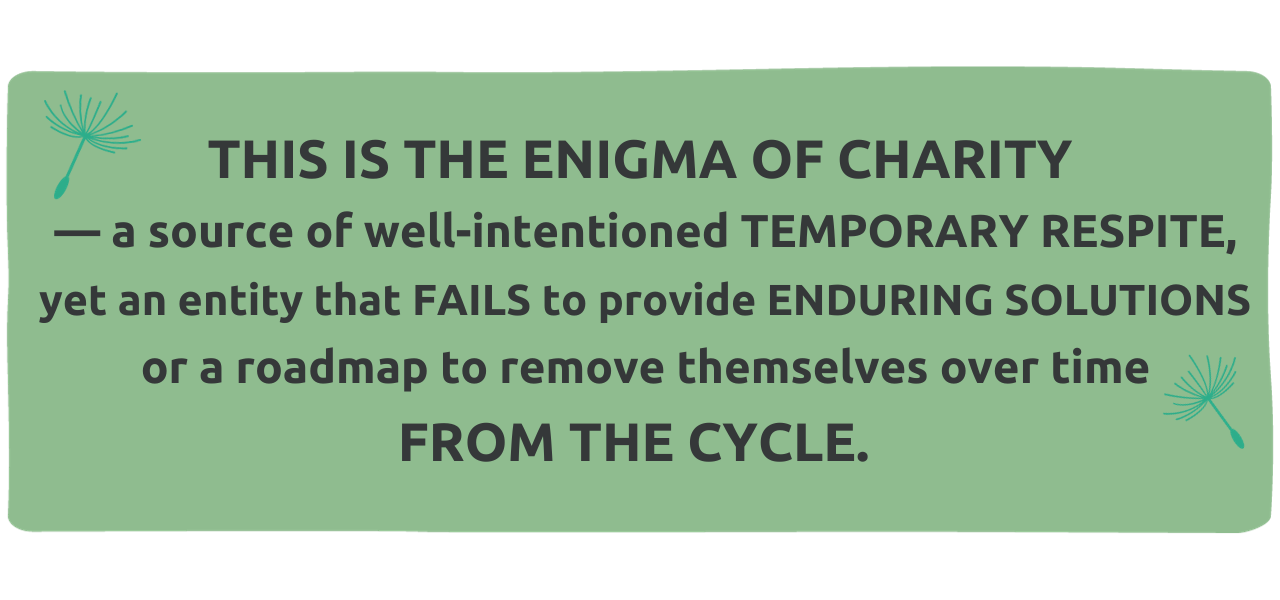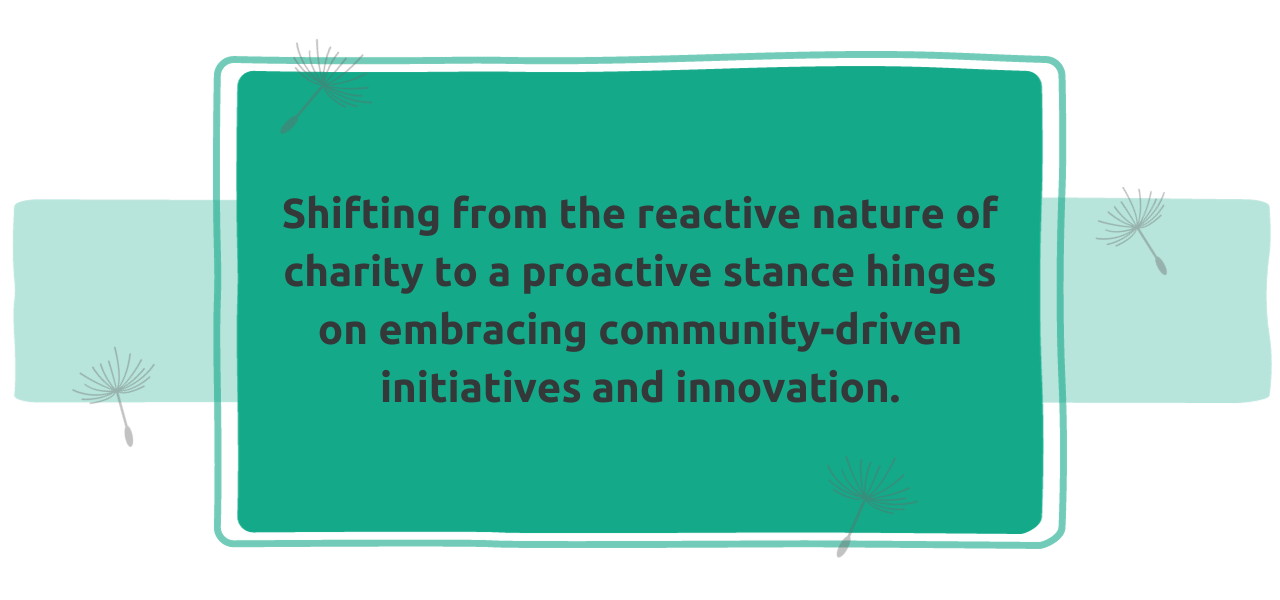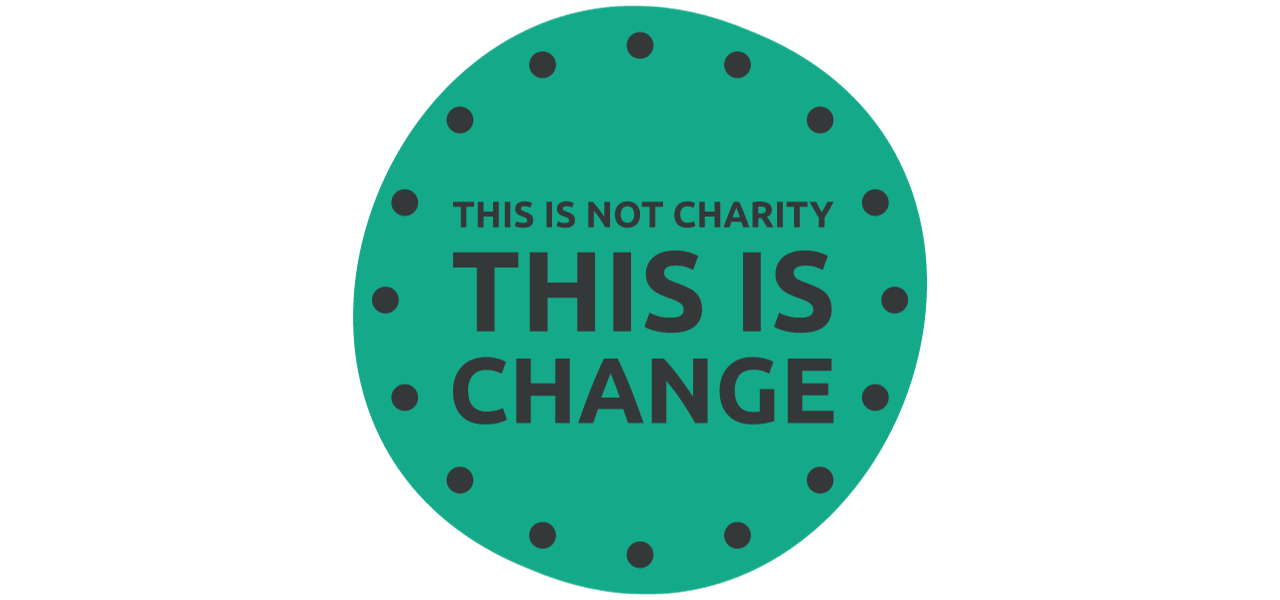Navigating Complex Transformation: Embracing Systemic Shifts
Today, I want to make a confession: I struggle with the concept and system of charity.
Let me qualify my confession by acknowledging that these benevolent organisations serve as beacons of hope during crises. However, in my view, their effectiveness in addressing deeply entrenched systemic issues often proves transient at best.
In a landscape rife with hunger, poverty, unemployment, gender-based violence (GBV), loss of identity, and the often unspoken intricacies of "Black tax", the limitations of conventional charity are starkly illuminated in the communities we serve.
Allow me to take you on a journey…
Imagine a family of 11, living in abject poverty, wrestling with hunger, unemployment, the lasting impacts of apartheid, and inadequate housing. Now, compound their struggles with a devastating fire that claims the lives of two of their family members and the little they once owned.
This is not a hypothetical story — a few weeks ago, this became the new reality of one family living in a shack in Cambridge Village, South Africa. The culprit? A single candle used to create light and a small amount of warmth while the family slept.
In response to these events, a charity may extend its helping hand, offering immediate relief in the form of food, first aid, and clothing. However, as time goes by, the family will inevitably find themselves immersed once again in the same systemic issues that consumed them before, now compounded by the added trauma of loss, like so many before them.
Imagine now, a family of two or three generations cohabitating and pooling the resources of five working adults to fund the education of one or two younger family members from the little they earn. This collective endeavour gives the children the gift of education, yet it creates a financial burden on the working family members, and a future burden on the children, who are now faced with a unique obligation — to reciprocate this kindness by financially supporting their older family members.
As these individuals enter the workforce, they bear a twofold responsibility — repaying student loans and continuing to contribute to the family fund. This dynamic fosters economic disparity, even among peers with similar educational backgrounds and comparable incomes. The chances of putting a down payment on a home, or buying a first car, are highly unlikely. The legacy of "Black tax" underscores how familial and communal support, while enabling education, can inadvertently perpetuate financial imbalance.
Let us assume that a local charitable organisation wanted to assist this particular family. For the charity, navigating the complexities of change is compounded by the mammoth task of overcoming corruption and interference, deciphering inconsistent documentation, and meeting stringent funding requirements from donors. The demand for nonprofit registration and tax exemption comes at a significant cost, often beyond the reach of such organisations, where limited funds mean their choices are restricted to either buying food or paying the registration fees required for eligibility for funding. Completing the application form, on which their request for aid will be assessed, in English (often a second, third, or even fourth language in many impoverished communities) is likely to result in an all-too-familiar but polite rejection. Without support, both the beneficiaries and the employees of the charity itself cannot survive.
Even when the charity is able to provide some form of relief, the question remains: Who really benefits in the end? And how long, realistically, can this benefit last?
The support, advocacy, and resources necessary for transformation remain closely guarded and controlled.
My critique of charity extends beyond individual cases or organisations, it reaches deep into the core of the industry. Even the most well-intentioned charity executives can find themselves ensnared in a web of dependency. The pursuit of consistent donations is likely to inadvertently stifle innovation and evolution. Additionally, the allocation of funds, particularly substantial executive salaries and expensive marketing costs, raise pertinent questions about the alignment of intentions with donors.
The intertwining of these complex factors impedes the ability to create meaningful change for the community, or even for charity workers themselves, highlighting the necessity of a revamped approach that transcends borders and bureaucratic barriers.
This is where the limitations of the traditional charitable model are exposed — the scarcity of sustainable strategies, the absence of comprehensive aid, and the perpetuation of dependence.
This sobering reality casts a spotlight on the inherent inadequacies of the established approach, leaving individuals and communities trapped in an unyielding cycle of dependency, and donors with an unending sense of obligation.
Amid these examples of the many limitations of charity, the need for alternative paradigms becomes evident.
Prioritising the empowerment of individuals directly affected should be a fundamental aspect of project initiation.
Community agency ensures initiatives are culturally relevant, effective, and sustainable, effecting a transition from donor-controlled intervention to locally nurtured sustainable transformation.
Do we cling to the cycle of dependency, or do we dare embark on a path of enduring empowerment? Can charity transcend its limitations to become an impetus for systemic change? Is the vision of community-driven transformation within reach, or is it a distant and naive aspiration?
Integral to this empowerment is leveraging community assets by harnessing local knowledge, skills, and resources to catalyse sustainable change.
It is the combination of intentional giving by those with privilege, the unencumbered entrusting of ownership into the hands of communities for their own advancement, and a commitment to partnering towards change on both sides, that we will create empowerment, equity, sustainable futures, and systemic change.
In this time of reform and restoration, we grapple with the paradox of charity while embracing the prospect of authentic transformation. We navigate a new trajectory where each donation signifies a commitment to change and a belief in the potency of empowerment. The narrative is evolving, moving beyond fleeting relief to forging lasting impact.
My question to you: Will we rise to lead this transformation together, challenging conventions and crafting a world where systemic issues yield systemic change? The future calls and it is our response that will pave a path to sustainable transformation.
Explore The Dandelion Philosophy's unique philanthropic approach here, or learn more by visiting our website.






